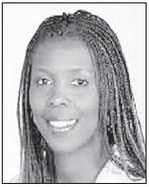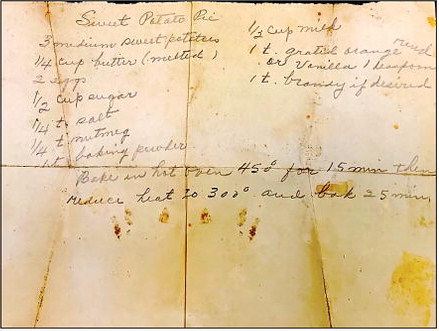Afterlife
It was one of the most beautiful things I’ve ever seen or heard on television, and I can’t stop thinking about it. Last week, my husband and I watched the sixth episode of “1883,” a Western drama on Paramount+ that is a prequel to the blockbuster series, “Yellowstone.” Sam Elliot with a big, bushy mustache deserving of its own zip code, stars in the drama along with Tim McGraw, Faith Hill and some relatively unknown actors and actresses. The Western follows the story of a wagon train of mostly immigrants traveling across the American plains (from Texas to Montana) in 1883. The group is led by Sam Elliot’s character, Captain Shea Brennan, who lost his wife and daughter to smallpox in the first episode. The Dutton family is also traveling with the group, including their lovely 17-year-old, blonde-headed daughter, Elsa, who falls in love with a cowboy named Ennis. As often happens in Westerns, Ennis dies tragically trying to protect Elsa in an earlier episode. Elsa, with a loaded pistol in her lap, is inconsolable and questions whether or not she can go on without her love. That’s when old Shea sits down beside her at Ennis’ grave and shares some personal thoughts that are as powerful as they are beautiful.
Old Shea says, “I’ve sat right where you’re sittin’, thinkin’ the same thing — thinkin’ I don’t want to live without them. Don’t see the point. Still do most days. But here I am, livin’ without ‘em.”
With tears streaming down her sun-freckled face, Elsa asks him why he chose to live in grief.
“I’ll tell you a secret,” the tough character says. “I’ll tell you why I’m still suckin’ air today. I’m headin’ to the ocean.”
Elsa doesn’t understand what the ocean has to do with navigating grief, and that’s when old Shea shares something so profound that I can’t shake it.
He says, “An Apache scout told me once, when you love somebody, you trade souls with ‘em. They get a piece of yours, and you get a piece of theirs. But when your love dies, a little piece of you dies with ‘em. That’s why you hurt so bad. But that little piece of him is still inside you, and he can use your eyes to see the world. So, I’m takin’ my wife to the ocean, and I’m gonna sit on the beach and let her see it. That was her dream.”
Shea Brennan’s speech has whirled around in my head for over a week now. I am not unfamiliar with the concept of the afterlife. Indeed, I grew up singing about Heaven and affirming my church’s beliefs on Sundays through reciting both the Apostles’ Creed and the Nicene Creed. Both reference resurrection and the life everlasting.
So I understand Christianity’s stance on this topic. Still, God planted a heaping helping of healthy curiosity and open-mindedness inside me. I spend a great deal of time pondering how things may work.
When I was in school, I learned that ancient Greeks believed that the messenger god, Hermes, would take the souls of dead people to the underworld and leave the souls on the banks of the River Styx. A ferry man transported the souls across the river to Hades. There, the souls would be judged. Good souls were rewarded by being sent to Elysian Fields (Heaven), while the bad souls were sentenced to eternity at Tartarus (Hell).
Ancient Egyptians also believed that their spirit would exist in an afterlife. They mummified bodies because they believed that the body was the home of the spirit and if the body was destroyed, the spirit may perish as well. After death, the spirits had to negotiate a dangerous journey and face final judgment, and so the Egyptian tombs were prepared to give the dead every advantage, including charms, special doors (escape routes), and instructions and continued from page
spells painted on the walls and coffins.
As for the Eskimos, there’s an ancient adage that says, “Perhaps they are not stars, but rather openings in heaven where the love of our lost ones pours through and shines down upon us to let us know they are happy.” I really love that concept.
There are dozens and dozens of beliefs about death and the afterlife out there in the world for me to consider. Up until last week, I always thought of the dead as a continuous presence in my heart — a flame that refuses to go out. I wasn’t familiar with the Apache belief that my eyes could be used by loved ones who have crossed over — that my father may have used my eyes like windows to see the whales off the coast of Hawaii in 2020, or that I helped my Grandmother Jarriel (who was nearly blind when she passed) revisit and see Jarrard Gap (where her grandfather lived) a few years ago, or that my Papa Lanier tours his farm with me outside of Metter every time I go and visit my Uncle Lamar and walk around.
I don’t know how things work, but I like the idea of continuing my life’s journey so my loved ones who have passed can continue to live on and see the beauty of the world through my eyes. In fact, I think I’ll go outside right now and stand in the morning sunshine so my loved ones can see what a lovely day it is here on earth today.







out of
Posted on